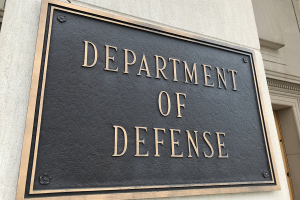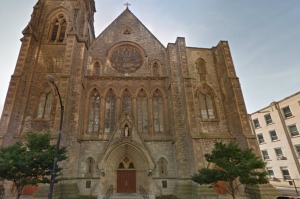Anglican 'Unity Covenant' Voted Down by Church of England
The Church of England has voted down a "unity covenant" that was intended to help keep together the Anglican Communion, which is experiencing fierce divisions over theological differences among its member churches.
First proposed in 2004 amid the controversy surrounding some member churches' acceptance of homosexuality and female clergy, the covenant laid a process to deal with any church seen as possibly disrupting the unity of the 77 million member Anglican Communion.
Championed by outgoing Archbishop of Canterbury Dr. Rowan Williams, the covenant was declared defeated after the 23 nay votes had been cast out of the 44 Dioceses of the Church of England.
Howard Dobson, media officer for the Church of England Council of the Archbishop, told The Christian Post that the vote has a wide-reaching effect on the attempted "unity covenant."
"The Covenant is clearly now not going to receive the support of the majority of synods and as a result the General Synod will not be able to give it final approval once the diocesan reference process is complete," said Dobson.
"The Synod will need to debate the diocesan results either in July or February and that will provide an opportunity for reflection on the implications, not least in the context of the progress of consideration of the Covenant elsewhere in the Communion."
Dobson believes that "it is too early at the moment to offer views on what the diocesan decision means. This is something for further discussion both within the [Church of England] and within the Communion itself."
This assessment was echoed by Neva Rae Fox, public affairs officer for The Episcopal Church – the U.S. arm of Anglicanism. Fox told CP that the "Anglican Covenant will be discussed at the 77th General Convention which will be held July 5 through July 12 at the Indiana Convention Center in Indianapolis."
Jeff Walton, staffer at Anglican Action Program at the Institute for Religion & Democracy, told CP that the result of the Church of England's vote was unsurprising.
"Both liberals and conservatives in the church disliked it. Liberals thought it was top-down control being imposed upon them, some conservatives found it to be a toothless distraction that had no provision for disciplining those who violated the covenant," said Walton.
"Rowan Williams' retirement announcement was an early indication of the covenant's failure – he put effort into advancing it, and he eventually saw the writing on the wall."
Walton considered the covenant to be "a well-intentioned effort to bring some sense of unity to a deeply divided communion," but also felt that two factions within the global body are increasingly drifting apart.
"One, led by the Global South churches and visible through the GAFCON (Global Anglican Future Conference) movement, is biblically orthodox," said Walton.
"The other, led by the U.S.-based Episcopal Church and the Anglican Church in Canada, is increasingly revisionist in its views of Scripture."
The Episcopal Church first caused uproar in 2003 when it consecrated its first openly gay bishop. A second openly gay bishop was ordained in 2010 despite calls for restraint on the ordination of noncelibate homosexuals by the rest of the Anglican Communion. With support from leaders in the Global South, conservative Anglicans in the U.S. have distanced themselves from The Episcopal Church and formed their own church bodies.
Robert H. Lundy, communications officer for the American Anglican Council, a conservative advocacy organization, told CP that unity would not be an issue in the Anglican Communion were it not for the positions and actions of The Episcopal Church in the United States and the Anglican Church of Canada.
"There is much unity around the uniqueness of Jesus Christ and the authority of Holy Scripture among churches in the Global South and the Anglican Church in North America," said Lundy.
"Unless leaders in the Anglican Communion press for a confessional unity, a unity based upon a common confession of faith in Christ and who He is, then any 'unity' within the Anglican Communion is merely a vain attempt at maintaining the appearance of true devotion to Christ."





























